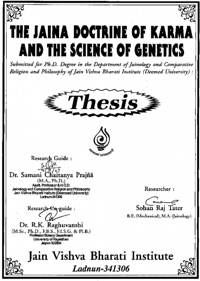The off-springs resemble their parents in one or several respects, yet there are differences between the two. These differences whether large or small, are called variations. Some of the variations may be induced by environment. While other may be hereditary. Generally the variations caused by environment are not permanent, hence non heritable. But the variations which appear due to changes in the hereditary mechanism are permanent and heritable. Sudden appearance of marked heritable variation in the nature of any organism in ordinary sense is known as mutation and the offsprings with unusable variability in characters are called mutants. A mutant individual or cell is one in which the changed phenotype is attributable to mutated gene or genes.
Many other definitions for mutation have been from time to time by different biologists. Some are as under:
- Sudden appearance of new hereditary character in the progenies of plants and animals was referred to as "sport" or mutation by Darwin.
- In the broad sense, it covers any "heritable change in the genotype" (micro mutation). In narrower sense "mutation is a change of gene".
- According to Bateson "mutation is a discontinuous variation".
- According to De vries "mutations are sudden and drastic heritable changes not traceable or ascribable to segregation or recombination".
- Stabbins describes mutation as discontinuous chromosomal change with genetic effect. He further states that the chromosomal change refers to chemical change in a small part of its chromosome, as well.as to alteration of its physical structure.
- Amatto and Otto (1956) have defined mutation as a change in the herediatory constitution of a given species.[33]
 Prof. Dr. Sohan Raj Tater
Prof. Dr. Sohan Raj Tater
 Doctoral Thesis, JVBU
Doctoral Thesis, JVBU